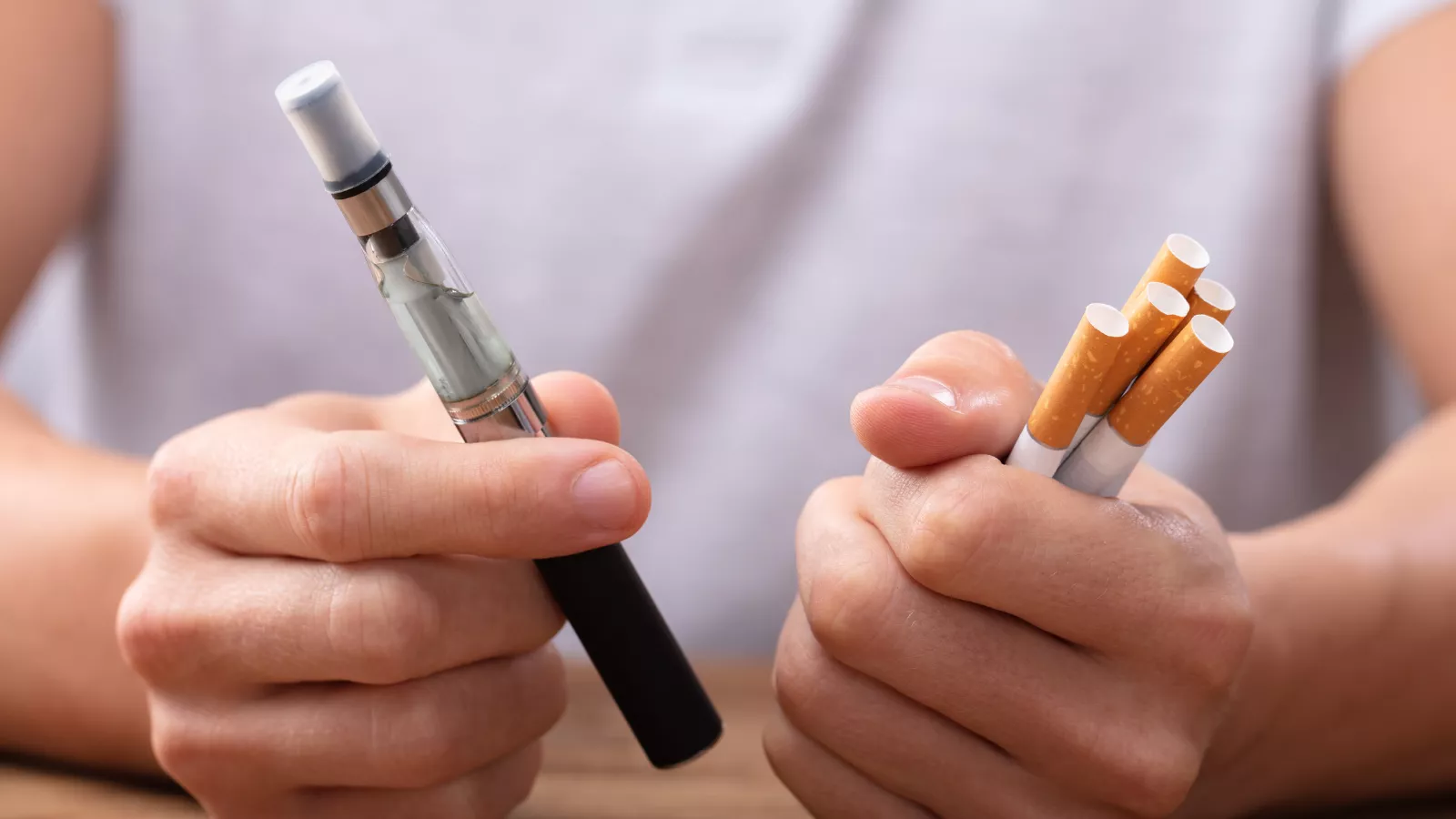The debate between vaping and smoking is no longer limited to curious teenagers or occasional smokers. It has taken center stage within the public domain. From cafés to classrooms, people are asking if vaping is actually safer [or just marketed that way].
While smoking has long been established as a major cause of lung disease, the real effects of vaping on lungs are still being uncovered. What is certain, however, is that both habits impact the lungs in more ways than people realize.
Understanding how your lungs respond to smoke or vapor is the first step in protecting your health. Whether you are trying to quit smoking or simply looking for accurate information, it is important to separate fact from assumption.
What Happens to the Lungs When You Smoke?
The lungs are affected by smoking from the very first puff. Cigarette smoke contains thousands of chemicals, including tar, carbon monoxide, and heavy metals. The smoke entering the lungs damages the delicate airways and air sacs.
The damage builds gradually. Over time, it becomes harder for the lungs to transfer oxygen into the bloodstream. During this stage, breathing becomes labored, and the risk of experiencing bronchitis and emphysema increases.
Smoking also reduces the body’s natural ability to fight infections. Thus, smokers are more likely to be affected by various issues like pneumonia, asthma flare-ups, and long-term respiratory complications.
People asking the fundamental question, “Can lungs recover from smoking?” do not always have a straightforward answer. Some healing may occur after quitting, but deep structural damage may stay for life.
What About Vaping? Is It Any Safer?
The idea that vaping is less harmful has been repeated so often that it now feels like fact. But what is the actual impact? The truth is that the effects of vaping on lungs are still being studied! Vaping introduces aerosols into the lungs, not just harmless water vapor. These aerosols carry nicotine, flavoring chemicals, and fine particles that go deep into the airways.
Research suggests that this exposure can lead to inflammation in the lungs. It may also cause long-term irritation. It may also lead to a condition known as “popcorn lung,” where the small airways become narrowed and scarred. This is caused by exposure to diacetyl, a flavoring chemical found in some e-cigarettes.
Can you get lung cancer from vaping? The answer is not yet confirmed. Some studies show links between vaping chemicals and cancer-causing properties. Others are still ongoing. While no clear cause has been established, there is enough evidence to raise concern. Until long-term results are available, it is safer to treat vaping as a habit with risk. Assuming safety without proof puts the lungs in danger without knowing the full cost.
Key Differences in How Each Habit Affects the Lungs
While both smoking and vaping damage the lungs, they do so in slightly different ways.
- Smoking causes irreversible harm to the structure of the lungs. Tar builds up and destroys lung tissue permanently.
- Vaping triggers inflammation and may impair immune response. It can lead to acute injuries and unexplained lung damage in some users.
- Smoking has been linked directly to lung cancer. Vaping may carry a lower cancer risk, but other respiratory problems can still occur.
In many cases, people who switch from smoking to vaping continue both habits. This dual use can lead to more harm than intended. It cancels out any minor benefit from avoiding cigarette smoke.
Can the Lungs Recover After You Quit?
Many people wonder, can lungs recover from smoking? The answer depends on how long and how much you have smoked. In the first few months after quitting, your lungs begin to clear out mucus and rebuild their defense systems. Coughing may temporarily increase, but that is the body trying to heal.
There is a chance for healing when someone quits early. If the lungs have not sustained deep damage, they may regain some of their lost capacity. This happens gradually. But if smoking has continued for years without pause, the outlook may be different. Long-term smokers often develop conditions such as COPD or emphysema. These do not always stop progressing even after quitting. This is the reason early action makes a major difference in outcome.
A pulmonologist can perform a lung function test to assess the extent of the damage. They can also recommend medication, breathing exercises, or lifestyle changes to support recovery.
Why Vaping Should Not Be Ignored
Many younger users believe that vaping is safer because it feels smoother and does not produce a strong smell. But what feels safe is not always safe. Vaping liquids may contain substances that irritate or poison the lungs over time.
In severe cases, people have been hospitalized with sudden respiratory failure after using certain vaping products. The effects of vaping on lungs may not appear right away. This makes the habit even more dangerous. Damage builds slowly, and by the time symptoms show, treatment becomes harder.
When to See a Specialist
If you are facing persistent breathing problems, coughing without a clear cause, or chest tightness, it is time to see a doctor. A trained pulmonologist in India will use imaging and lung function tests to find the source of the problem. Early detection gives you the best chance of managing the damage.
It is also wise to visit a pulmonologist if you are planning to quit smoking or vaping. They can help track your lung health and guide you through the quitting process with medical support.
Conclusion
The lungs are affected by smoking in ways that are clear, visible, and deadly. Vaping may carry fewer long-term risks, but that does not make it safe. Both habits damage the lungs and weaken your body’s defense against infection and disease. Be it smoking cigarettes or vape; the outcome may prove to be fatal. Connect with the Aster Hospital team to find relevant solutions.





